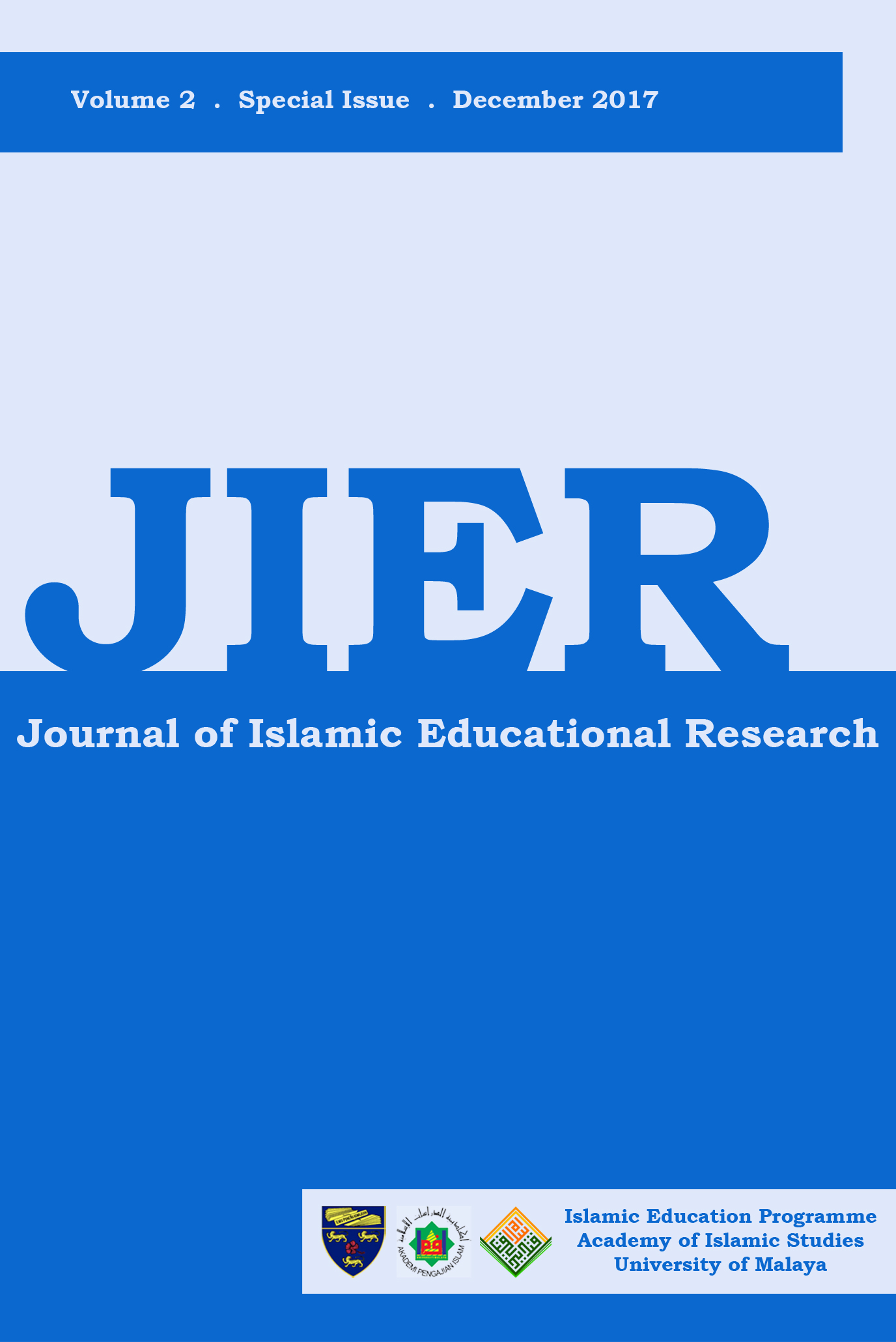PERANAN GURU PENDIDIKAN ISLAM DALAM PEMBINAAN SAHSIAH PELAJAR: SATU TINJAUAN AWAL TERHADAP GURU PENDIDIKAN ISLAM DI DAERAH MARANG, TERENGGANU
THE ROLE OF ISLAMIC EDUCATION TEACHER IN THE CONSTRUCTION OF STUDENT’S MORAL: A PRELIMINARY STUDY ON ISLAMIC EDUCATORS IN MARANG, TERENGGANU
Keywords:
Role of Teacher, Problem of Student, Islamic Education Teacher, Character of StudentAbstract
Nowadays various issues regarding the character of a student in a school give a negative impact on the teacher profession generally and Islamic Education Teacher specifically. Some recent studies have shown that Muslim students are trapped by the phenomenon of social phenomena, moral collapse and personality. The moral and morality crisis of students is said to have a close relationship with Islamic Education Teachers who have a role as a moral educator and personality of the students. This paper is also written to dismantle the role of Islamic Education Teachers as well as to see the problems and challenges arising in the realization of their role as Murabbi, Mu'allim, Mu'addib, Mudarris and Murshid and those who can be role models and examples of noble personality among students include from the context of building personality and character. Islamic Education Teachers should be prepared to carry out their duties and responsibilities as well as overcome obstacles, challenges and issues that arise.
Downloads
Downloads
Published
How to Cite
Issue
Section
License
The published manuscript shall be a copyright of the Islamic Education Programme, Academy of Islamic Studies, University of Malaya, Kuala Lumpur, Malaysia. The published manuscript would not represent the stand or opinion of the Advisory Board, Editorial Board, Co-Editorial Board and the Management Team of Journal of Islamic Educational Research (JIER), or the Islamic Education Programme, Academy of Islamic Studies, University of Malaya.
Note: This is an open access journal which means that all content is freely available without charge to the user or his/her institution. Users are allowed to read, download, copy, distribute, print, search, or link to the full texts of the articles in this journal without asking prior permission from the publisher or the author. This is in accordance with the BOAI definition of open access.






